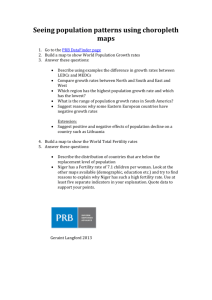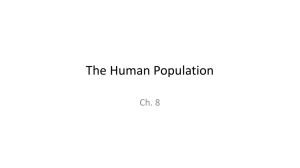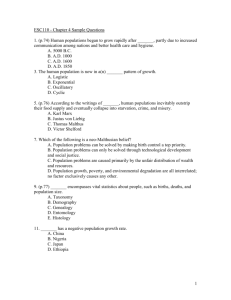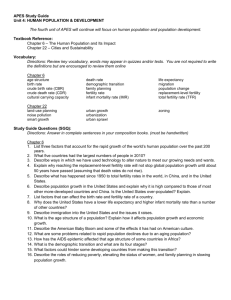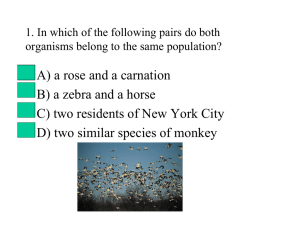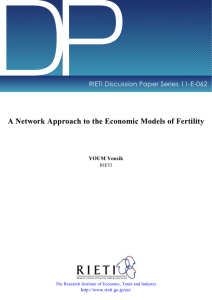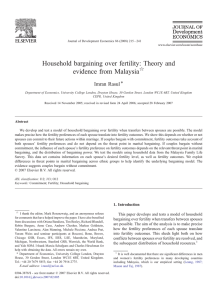Estimating a Model of Fertility Bargaining LIKAS UMALI
advertisement
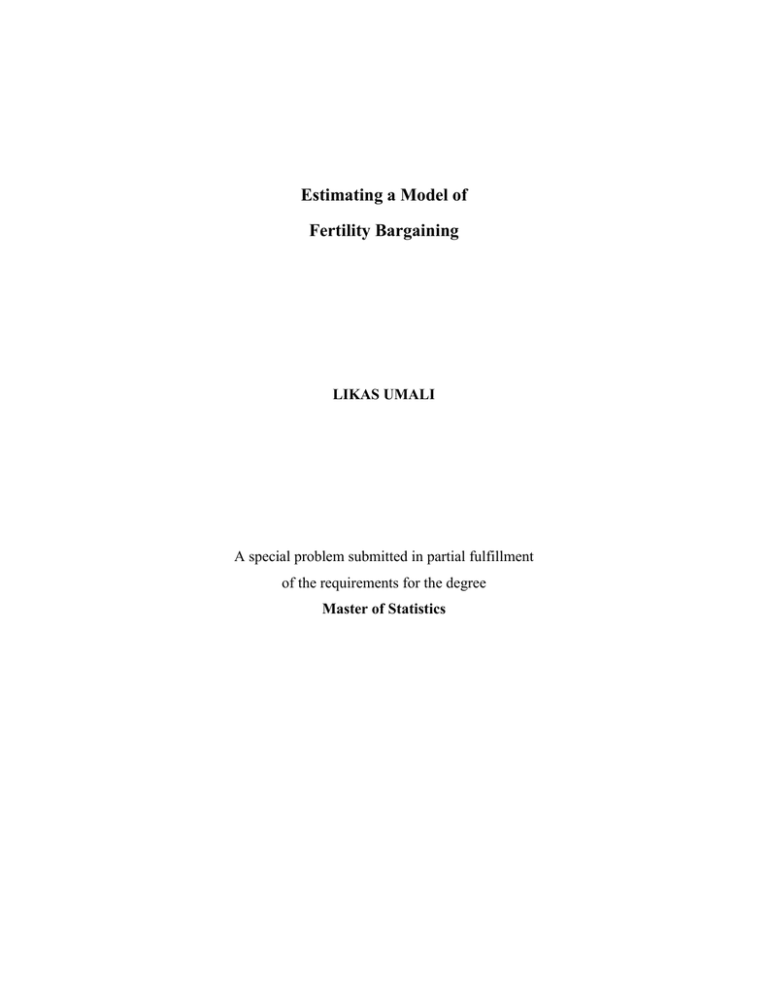
Estimating a Model of Fertility Bargaining LIKAS UMALI A special problem submitted in partial fulfillment of the requirements for the degree Master of Statistics i ABSTRACT High fertility rates have been problematic for countries seeking development, not only in terms of its adverse effects, but also when it comes to its causes, which make it difficult to lower fertility rates. Hoping to contribute to the overall goal of lowering fertility rates in the Philippines, this study attempts to elucidate one aspect of the fertility process, that between the husband and the wife, to see how fertility preferences, bargaining power, and outside options affect fertility outcomes. Rasul’s bargaining model over fertility, a simplified version of a twostage game, was used as the theoretical framework for this purpose. This was estimated using a multilevel model with a Poisson distribution with data from 2010 United Nations Population Fund survey covering 11 Philippine provinces, and supplemental provincial data from the 2010 Philippine Census and from the 2009 Philippine Labor Force Survey. Results suggest that both wives’ and husband’s preferences matter in the fertility process as much as bargaining power. Outside options, compared across provinces, also matter in determining fertility outcomes. These findings provide evidence that Filipino couples bargain without commitment, which has ostensibly resulted in inefficiently high fertility outcomes with 3.74 children ever born on average per household.
